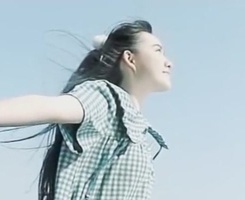
The six candidates vying to succeed outgoing International Olympic president Jacques Rogge in September presented their personal visions of the future of the movement in Lausanne on Thursday hong kong company register.
The process - the first time this has been done - was declared a useful exercise by both the candidates and their fellow IOC members, who will vote on who replaces Rogge in Buenos Aires on September 10.
Rogge - who is stepping down after a successful 12-year spell in charge - said that the innovative move had been a success.
"The membership liked it very much. It was very interesting with very good programmes and I am very happy with the process," said the 71-year-old Belgian Domestic Helper.
The all male sextet professed themselves happy with being able to address their electorate - the only time they will do so.
Puerto Rican Richard Carrion, a 60-year-old banker and who negotiated the record $US4.38 billion ($A4.85 billion) deal with NBC for exclusive broadcasting rights in the United States through to the 2020 Games, was the first to go, although under the rules his rivals could not watch his performance.
"I spoke from my heart and let them know what was on my mind," he said.
"I told them we are facing tough challenges now and will do in the future and I was able to guide them through those. Also that my leadership would be based on values close to my heart."
Singapore's Ng Ser Miang, who like Carrion and Taiwan's Ching-Kuo Wu are bidding to become only the second non European to head the IOC, went second and expressed his satisfaction.
"I told them obviously my vision of what the IOC would be under my leadership," said the 64-year-old cheap bookcase, who is Singapore's ambassador to Norway.
"I talked about protecting our independence."
Thomas Bach, generally regarded early on as the front runner, was the third to go and the 59-year-old lawyer and 1976 Olympic team fencing gold medallist said it had been almost like his days as a sportsman waiting to compete and then once up on stage performing to one's best.
"I wanted to show them what the principles guiding me are and to show them also my history in the IOC," said Bach, who has adopted the motto 'unity in diversity'.
Wu, who has been credited with doing a fine job in his seven years as president of the Amateur Boxing Federation (AIBA), said his core message had been to enlarge the IOC's work to make it a humanitarian body as well.
"We can help many people, we have the resources," said the 66-year-old.
Swiss lawyer Denis Oswald, a rowing medallist in the 1968 Games in Mexico City, was the penultimate candidate to present in a process that he had pushed for to be implemented.
"I am both delighted that this came about and I am satisfied I got my message across," said the 66-year-old Rowing Federation president, who was perceived as an outsider but could prove to be the dark horse.
Last to go was the biggest name, for sports fans at least, Ukrainian pole vault legend Sergei Bubka, who surprised many by throwing his hat into the ring at the age of just 49 and his angle was to ensure the young were not lost to the movement.
"We must bring them (the young) to us. Today it is dangerous and scary with the young because they are not doing any exercise, they are just sitting around. We have to move in the right direction and invest in the future, which is the young."
|